Vallabhbhai Patel (1875-1950) – Letter - a handwritten letter in Gujerati, written whilst Patel was imprisoned in Nasik Road Central Prison. The letter reads: Central Prison Nasik Road Date: 13.12.33 Dear Sister, I received the letter you sent. Then we believed that operation would be the must and as the operation seems to be critical, it might be needed to be done immediately, that’s why you might have gone to Mumbai. Therefore we sent the letter there. But as we received the letters of Chhaganbhai, Jitu and Dahyabhai and most of our worry gone away. It can be considered as the God has saved from the crisis. But we can be totally fearless when the stone gets away completely. But the big tension has been gone. Now you don’t need to go to Mumbai. Jitu write that he is coming to Ahmedabad. We have received the Mathiya (a Gujarati snack) and Til Laddu (sweet recipe of sesame and jaggery). Can we eat that much here? Also your brother is delicate and having a very little stomach, so we cannot finish it. There is no need to send anything here and everything is available here. We have the facility to order anything that is needed and we are allowed. Then why you should worry? We have received the news that Mrudula has gone to Mumbai. I have sent her two letters. I don’t know whether she received them or not. I wrote to send some money in the account of Maniben, but she has come into a confusion so it is possible that she has not received it. Hope you have arranged for soap. Arrange for the money after asking Mrudula. We have heard that Haribhai had visited Mumbai so he has come to everything know about Jitu. We both are fine. From, Salutations from Vallabhbhai. The 'both' referenced by Patel is believed to relate to Patel and Gandhi who were, at the time, imprisoned together. Stamped to top 'Superintendent - Nasik Road Central Prison ' with an official's signature in red pencil. Written in black ink to both sides of black-lined edged paper. Some folds. 17cm x 11cm. Upon the failure of the Round Table Conference in London, Gandhi and Patel were arrested in January 1932 when the struggle re-opened, and imprisoned in the Yeravda Central Jail. During this term of imprisonment, Patel and Gandhi grew close to each other, and the two developed a close bond of affection, trust, and frankness. Their mutual relationship could be described as that of an elder brother (Gandhi) and his younger brother (Patel). Despite having arguments with Gandhi, Patel respected his instincts and leadership. In prison, the two discussed national and social issues, read Hindu epics, and cracked jokes. Gandhi taught Patel Sanskrit. Gandhi's secretary, Mahadev Desai, kept detailed records of conversations between Gandhi and Patel. When Gandhi embarked on a fast-unto-death protesting the separate electorates allocated for untouchables, Patel looked after Gandhi closely and himself refrained from partaking of food. Patel was later moved to a jail in Nasik, and refused a British offer for a brief release to attend the cremation of his brother Vithalbhai, who had died in October 1933. He was finally released in July 1934 Vallabhbhai Jhaverbhai Patel (31 October 1875 – 15 December 1950), endeared as Sardar, was an Indian statesman. He served as the first Deputy Prime Minister of India from 1947 to 1950. He was a barrister and a senior leader of the Indian National Congress, who played a leading role in the country's struggle for independence, guiding its integration into a united, independent nation. He was one of the conservative members of the Indian National Congress. In India and elsewhere, he was often called Sardar, meaning "chief" in Hindi, Urdu, and Persian. He acted as the Home Minister during the political integration of India and the Indo-Pakistani War of 1947. One of Mahatma Gandhi's earliest political lieutenants, he organised peasants from Kheda, Borsad, and Bardoli in Gujarat in non-violent civil disobedience against the British Raj, becoming one of the m
Vallabhbhai Patel (1875-1950) – Letter - a handwritten letter in Gujerati, written whilst Patel was imprisoned in Nasik Road Central Prison. The letter reads: Central Prison Nasik Road Date: 13.12.33 Dear Sister, I received the letter you sent. Then we believed that operation would be the must and as the operation seems to be critical, it might be needed to be done immediately, that’s why you might have gone to Mumbai. Therefore we sent the letter there. But as we received the letters of Chhaganbhai, Jitu and Dahyabhai and most of our worry gone away. It can be considered as the God has saved from the crisis. But we can be totally fearless when the stone gets away completely. But the big tension has been gone. Now you don’t need to go to Mumbai. Jitu write that he is coming to Ahmedabad. We have received the Mathiya (a Gujarati snack) and Til Laddu (sweet recipe of sesame and jaggery). Can we eat that much here? Also your brother is delicate and having a very little stomach, so we cannot finish it. There is no need to send anything here and everything is available here. We have the facility to order anything that is needed and we are allowed. Then why you should worry? We have received the news that Mrudula has gone to Mumbai. I have sent her two letters. I don’t know whether she received them or not. I wrote to send some money in the account of Maniben, but she has come into a confusion so it is possible that she has not received it. Hope you have arranged for soap. Arrange for the money after asking Mrudula. We have heard that Haribhai had visited Mumbai so he has come to everything know about Jitu. We both are fine. From, Salutations from Vallabhbhai. The 'both' referenced by Patel is believed to relate to Patel and Gandhi who were, at the time, imprisoned together. Stamped to top 'Superintendent - Nasik Road Central Prison ' with an official's signature in red pencil. Written in black ink to both sides of black-lined edged paper. Some folds. 17cm x 11cm. Upon the failure of the Round Table Conference in London, Gandhi and Patel were arrested in January 1932 when the struggle re-opened, and imprisoned in the Yeravda Central Jail. During this term of imprisonment, Patel and Gandhi grew close to each other, and the two developed a close bond of affection, trust, and frankness. Their mutual relationship could be described as that of an elder brother (Gandhi) and his younger brother (Patel). Despite having arguments with Gandhi, Patel respected his instincts and leadership. In prison, the two discussed national and social issues, read Hindu epics, and cracked jokes. Gandhi taught Patel Sanskrit. Gandhi's secretary, Mahadev Desai, kept detailed records of conversations between Gandhi and Patel. When Gandhi embarked on a fast-unto-death protesting the separate electorates allocated for untouchables, Patel looked after Gandhi closely and himself refrained from partaking of food. Patel was later moved to a jail in Nasik, and refused a British offer for a brief release to attend the cremation of his brother Vithalbhai, who had died in October 1933. He was finally released in July 1934 Vallabhbhai Jhaverbhai Patel (31 October 1875 – 15 December 1950), endeared as Sardar, was an Indian statesman. He served as the first Deputy Prime Minister of India from 1947 to 1950. He was a barrister and a senior leader of the Indian National Congress, who played a leading role in the country's struggle for independence, guiding its integration into a united, independent nation. He was one of the conservative members of the Indian National Congress. In India and elsewhere, he was often called Sardar, meaning "chief" in Hindi, Urdu, and Persian. He acted as the Home Minister during the political integration of India and the Indo-Pakistani War of 1947. One of Mahatma Gandhi's earliest political lieutenants, he organised peasants from Kheda, Borsad, and Bardoli in Gujarat in non-violent civil disobedience against the British Raj, becoming one of the m
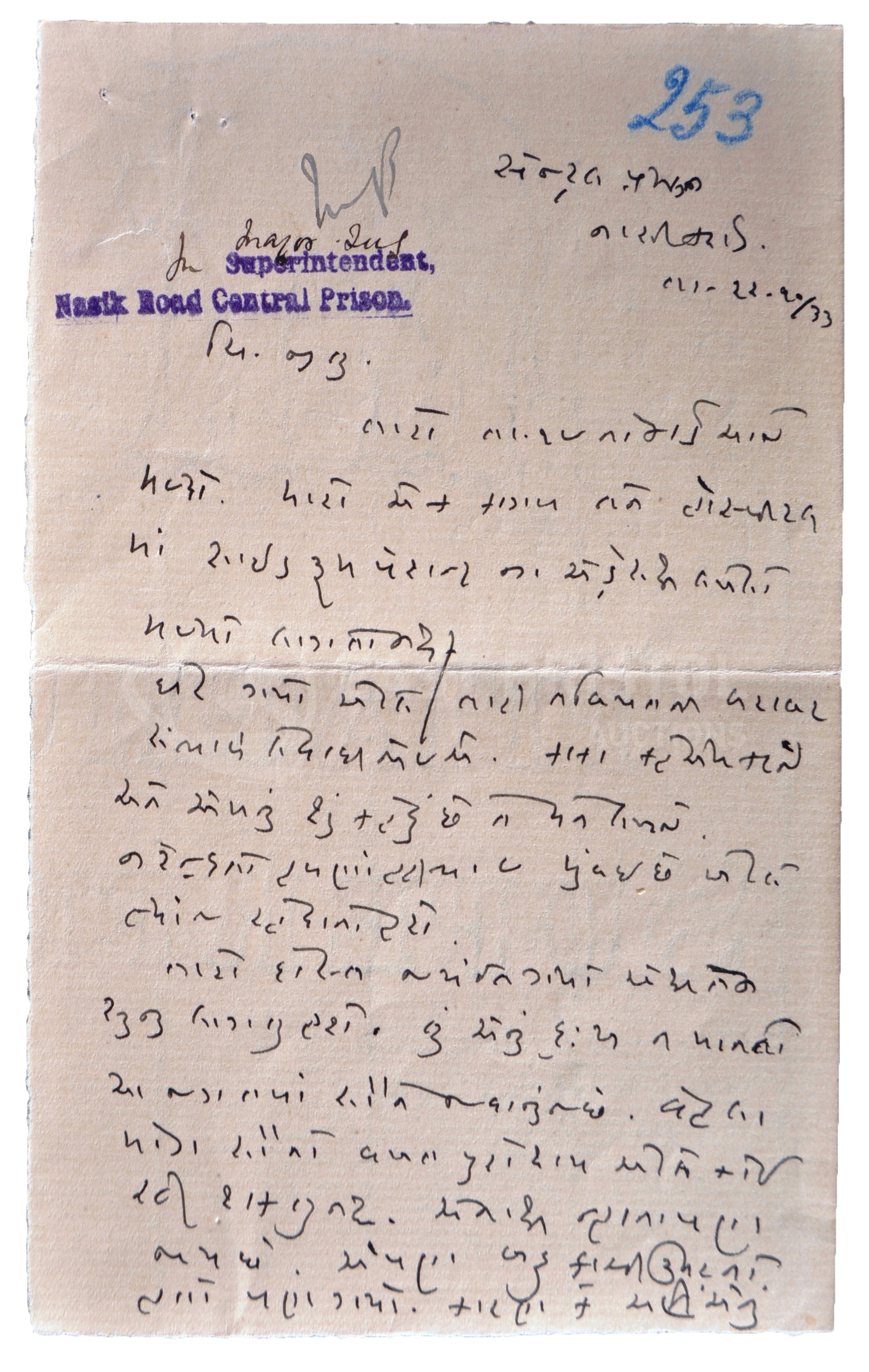

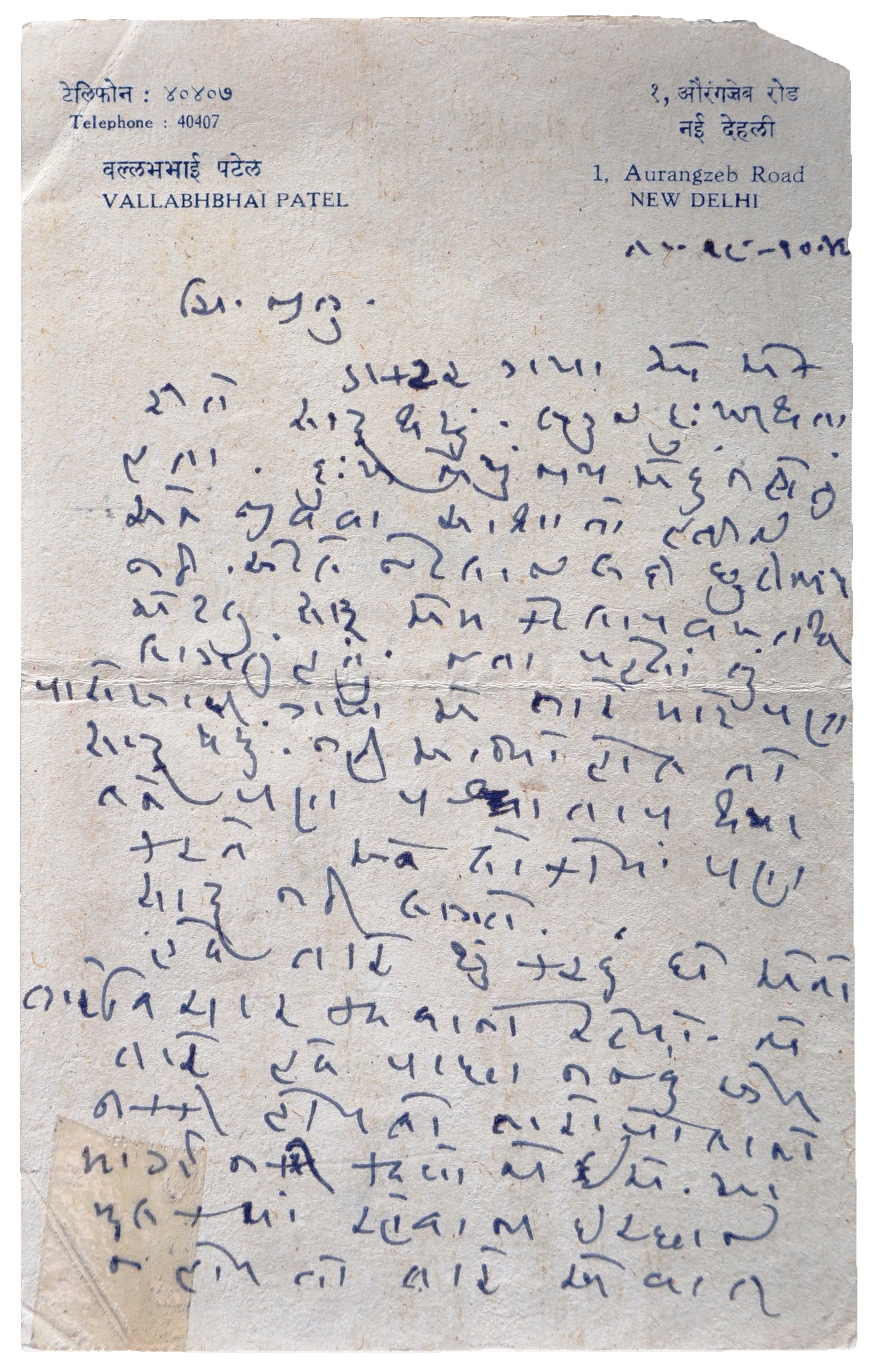

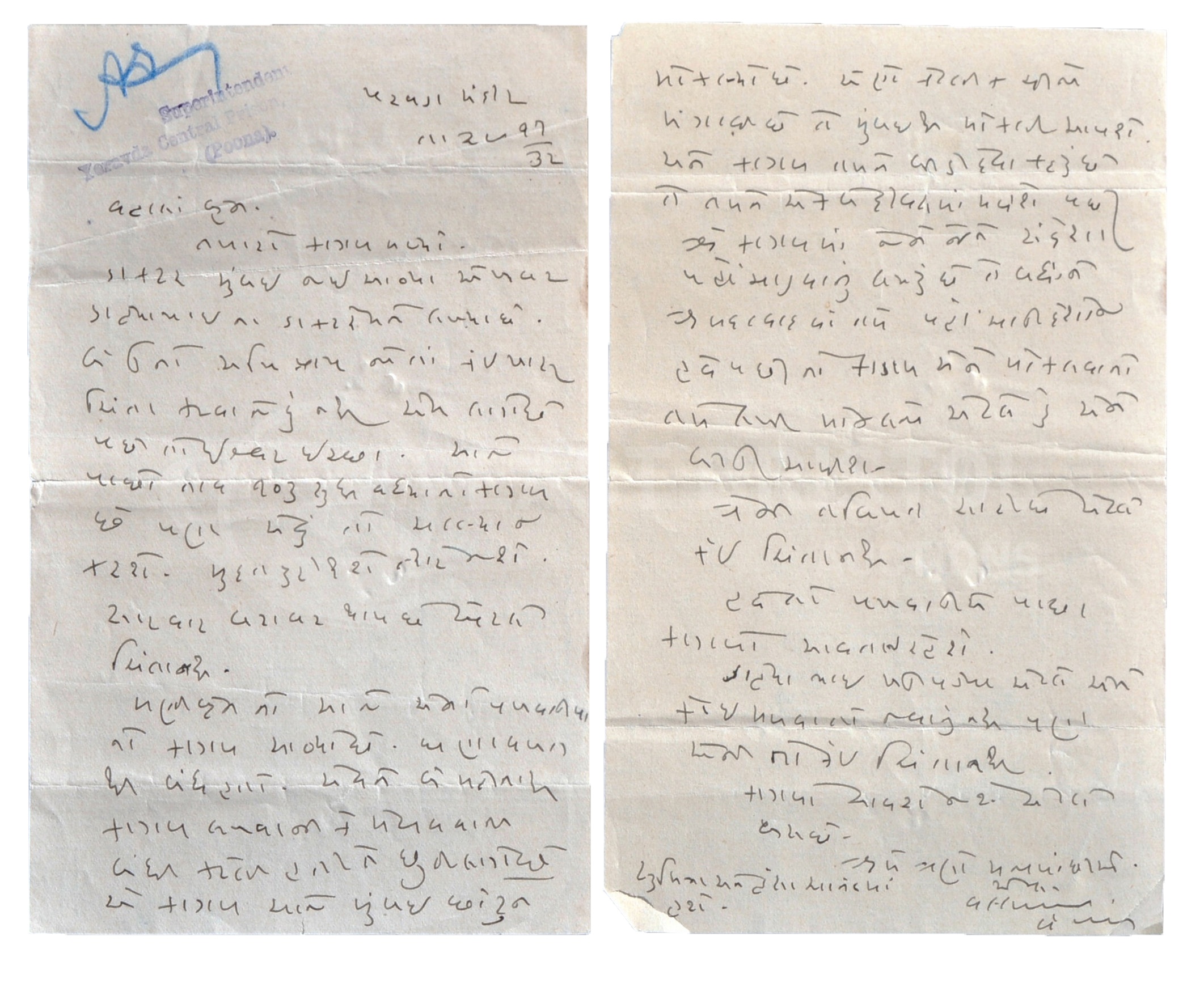
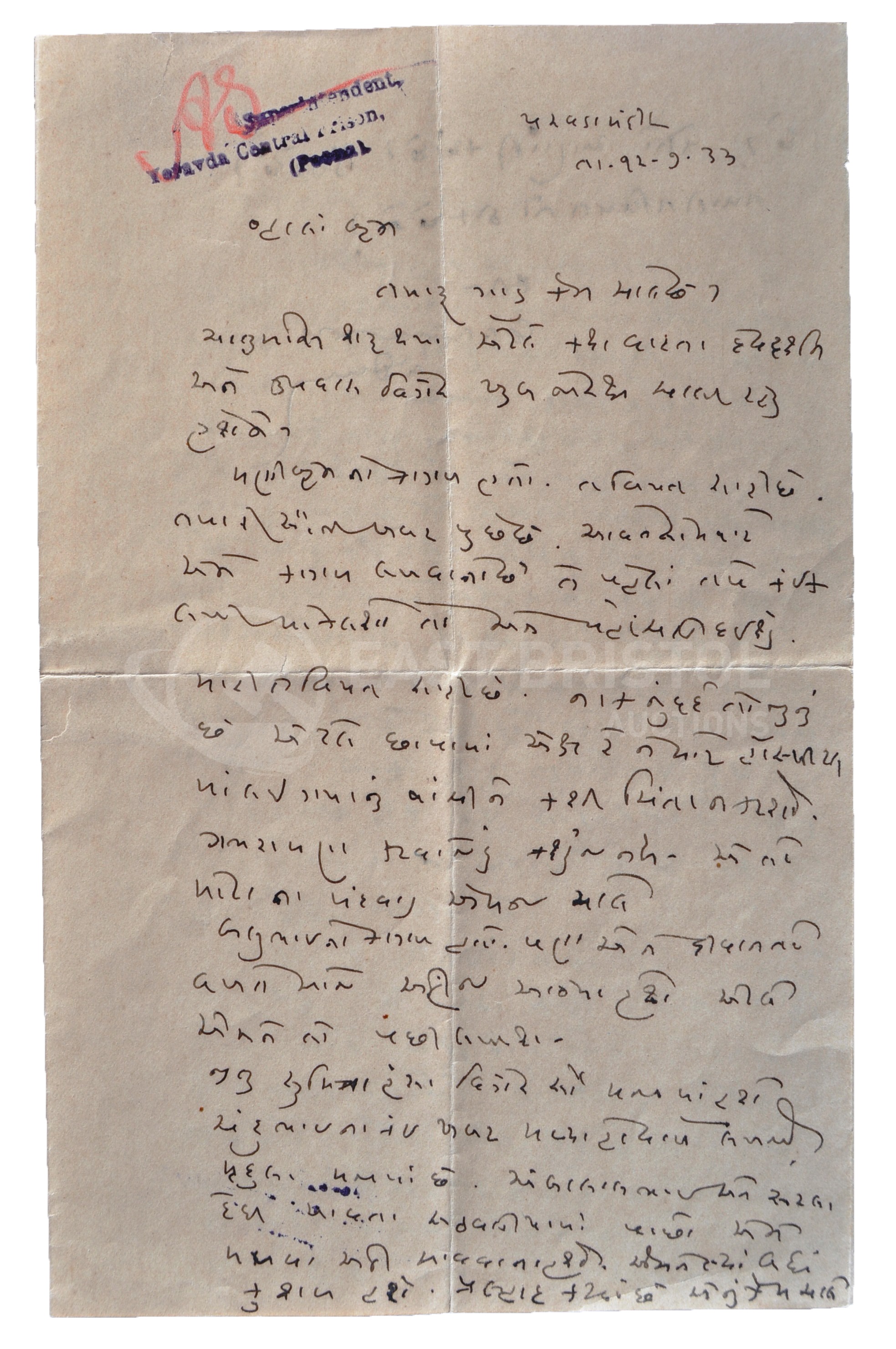


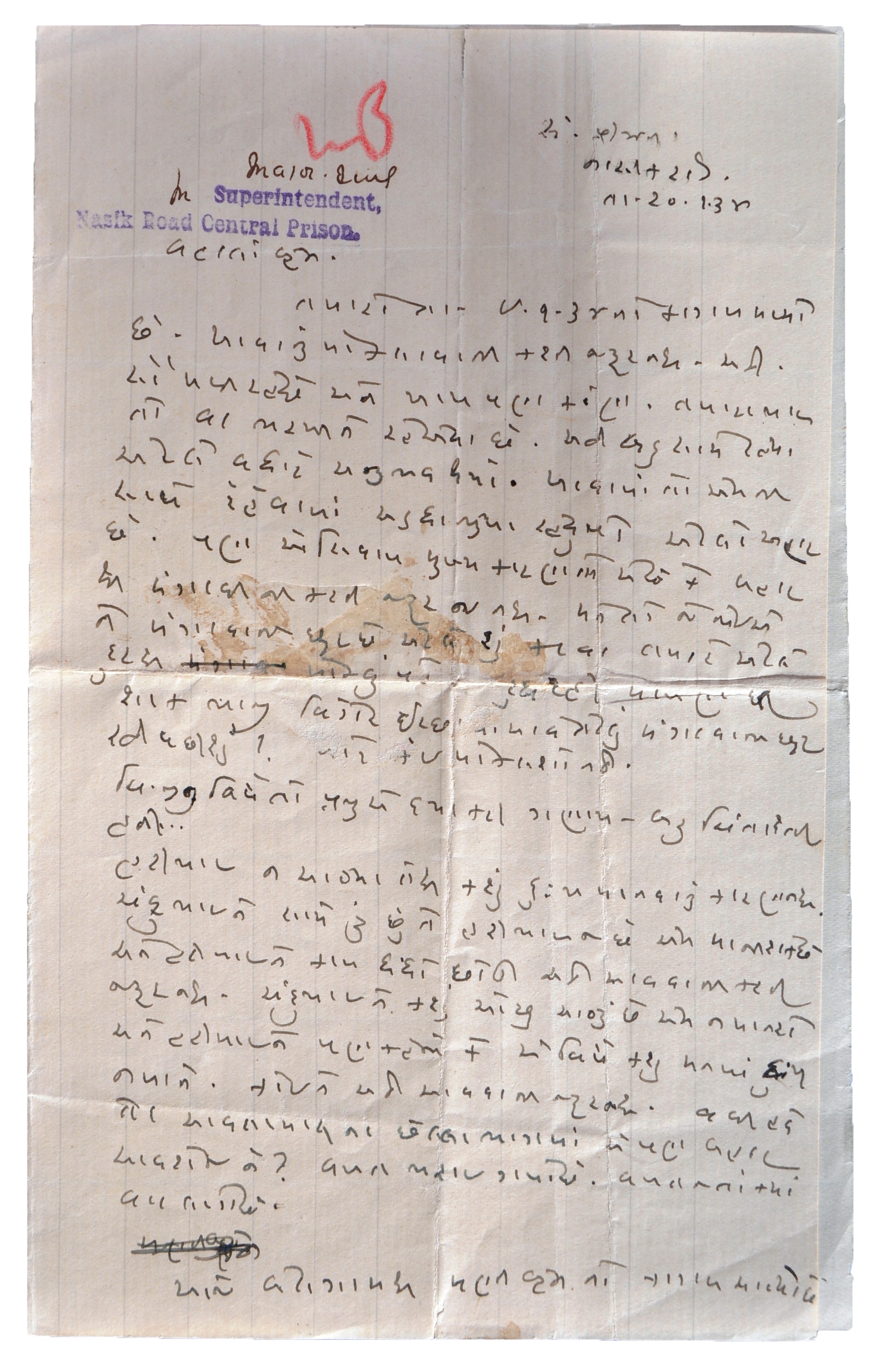

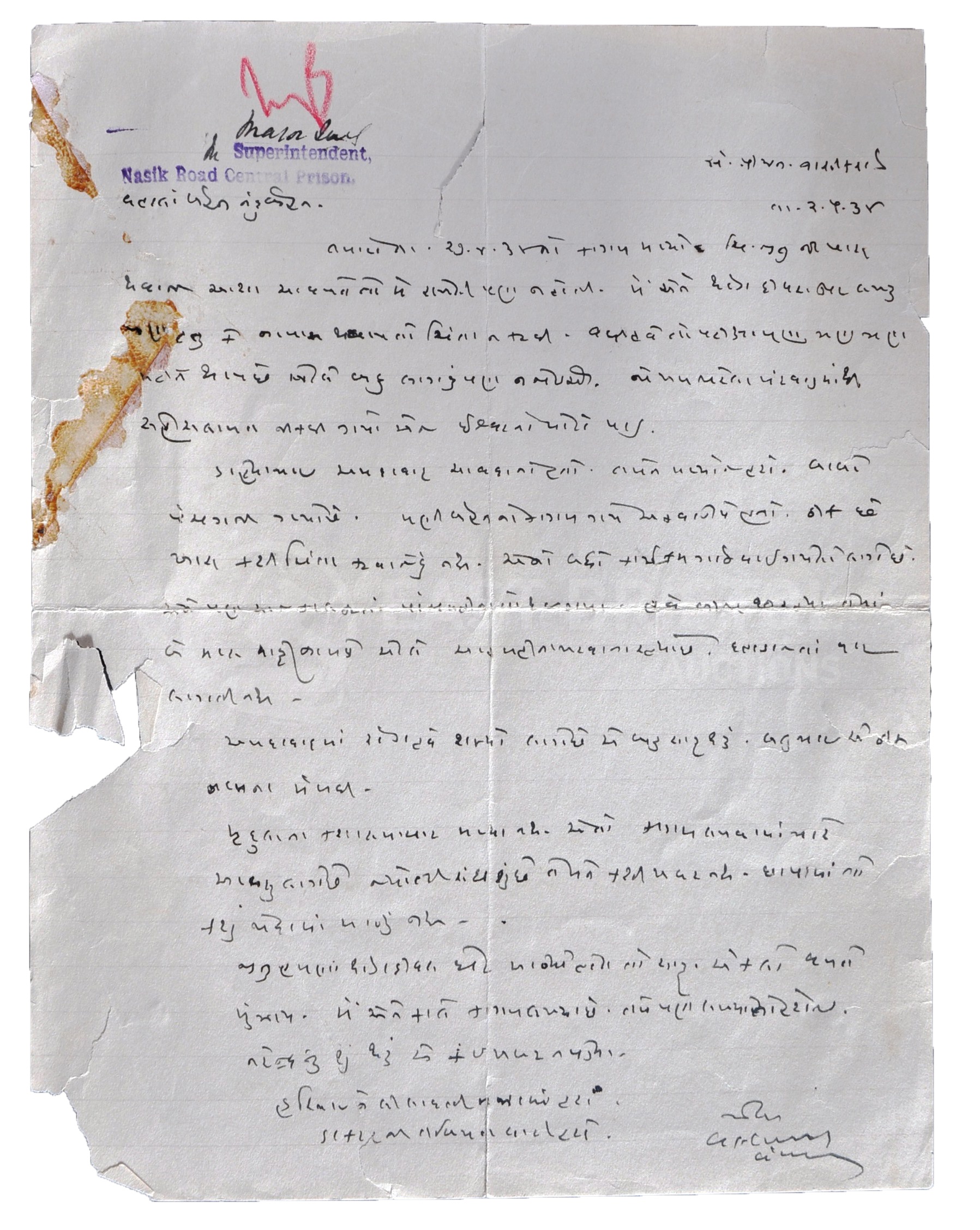

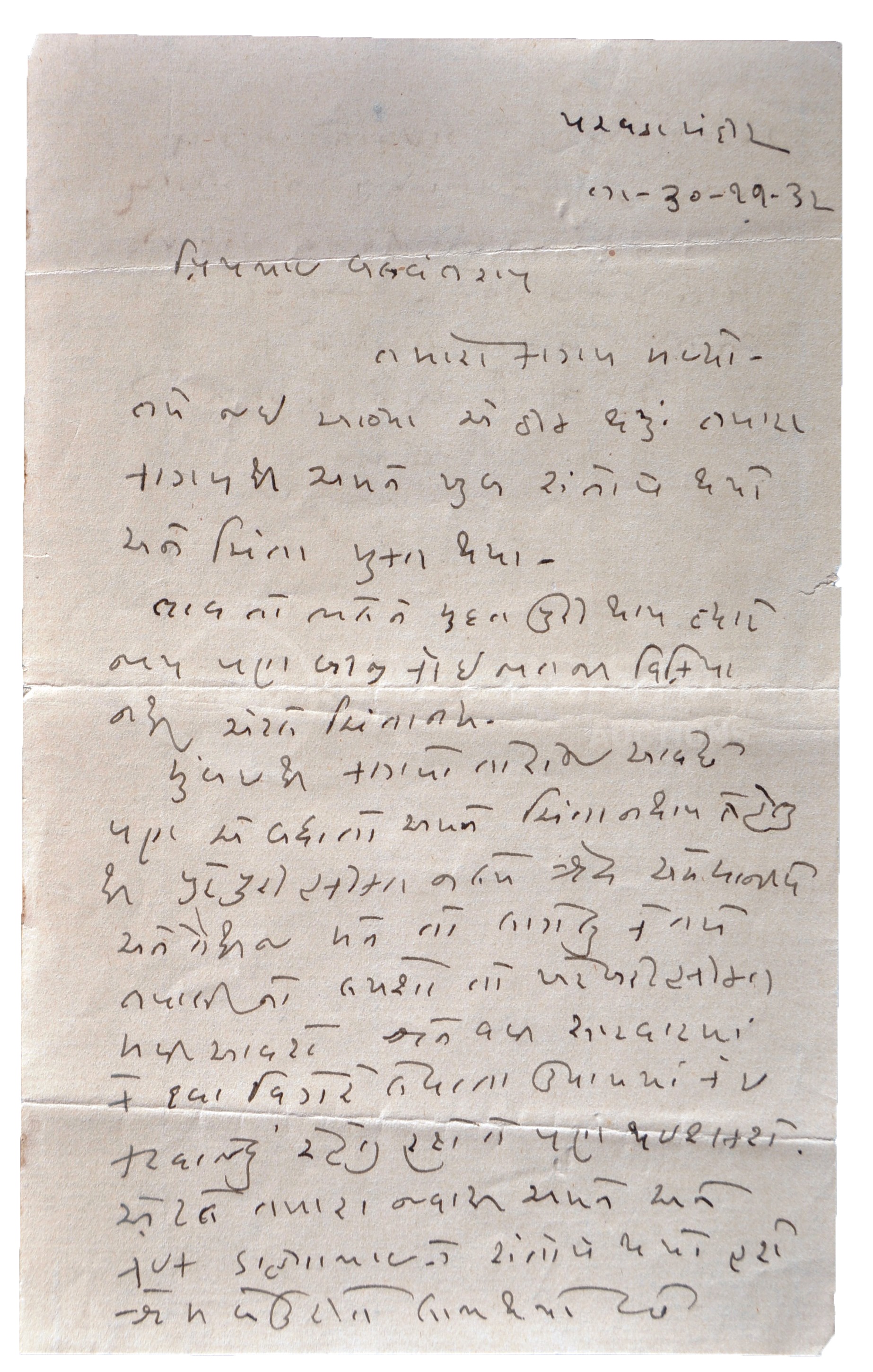
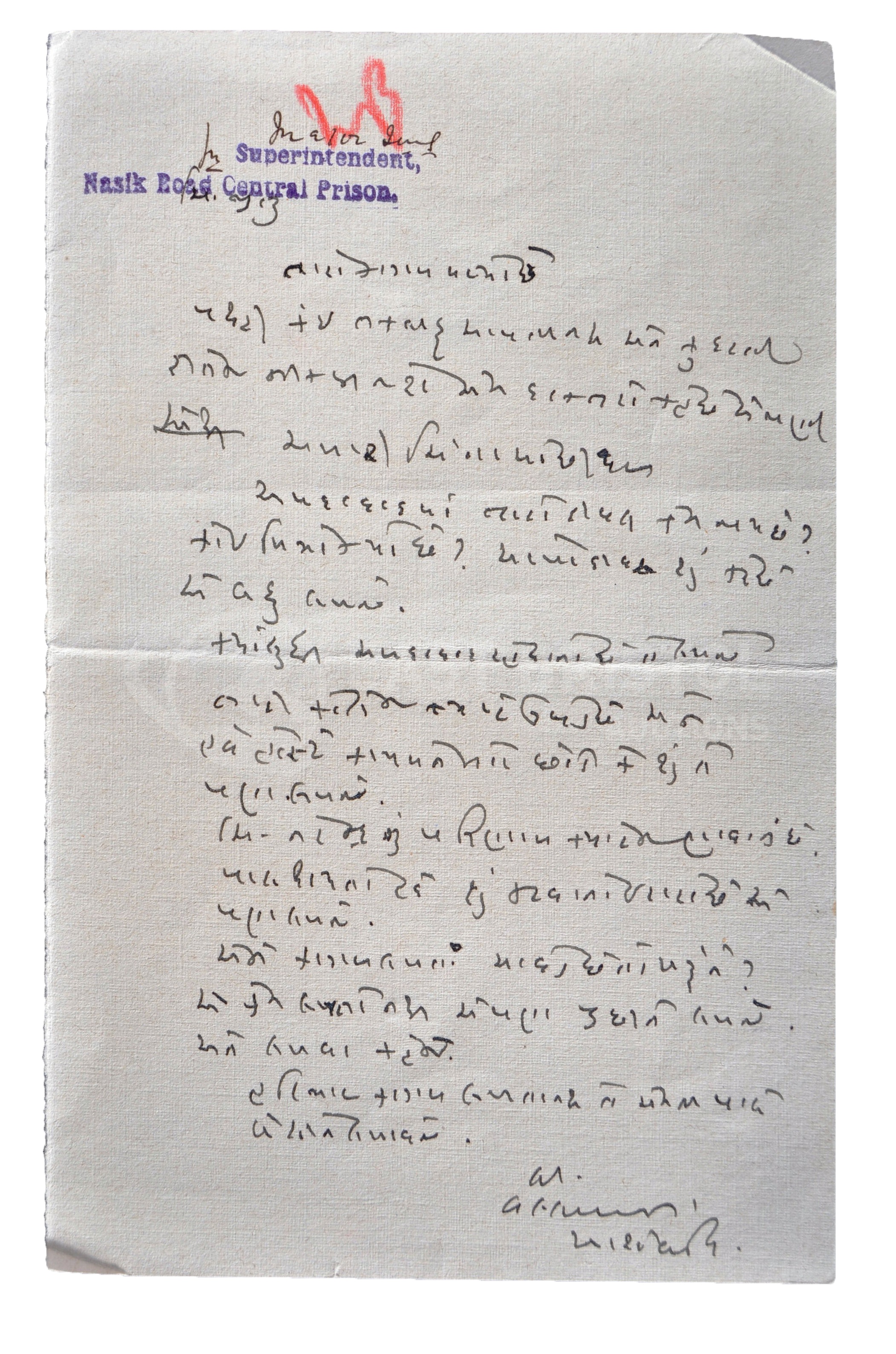
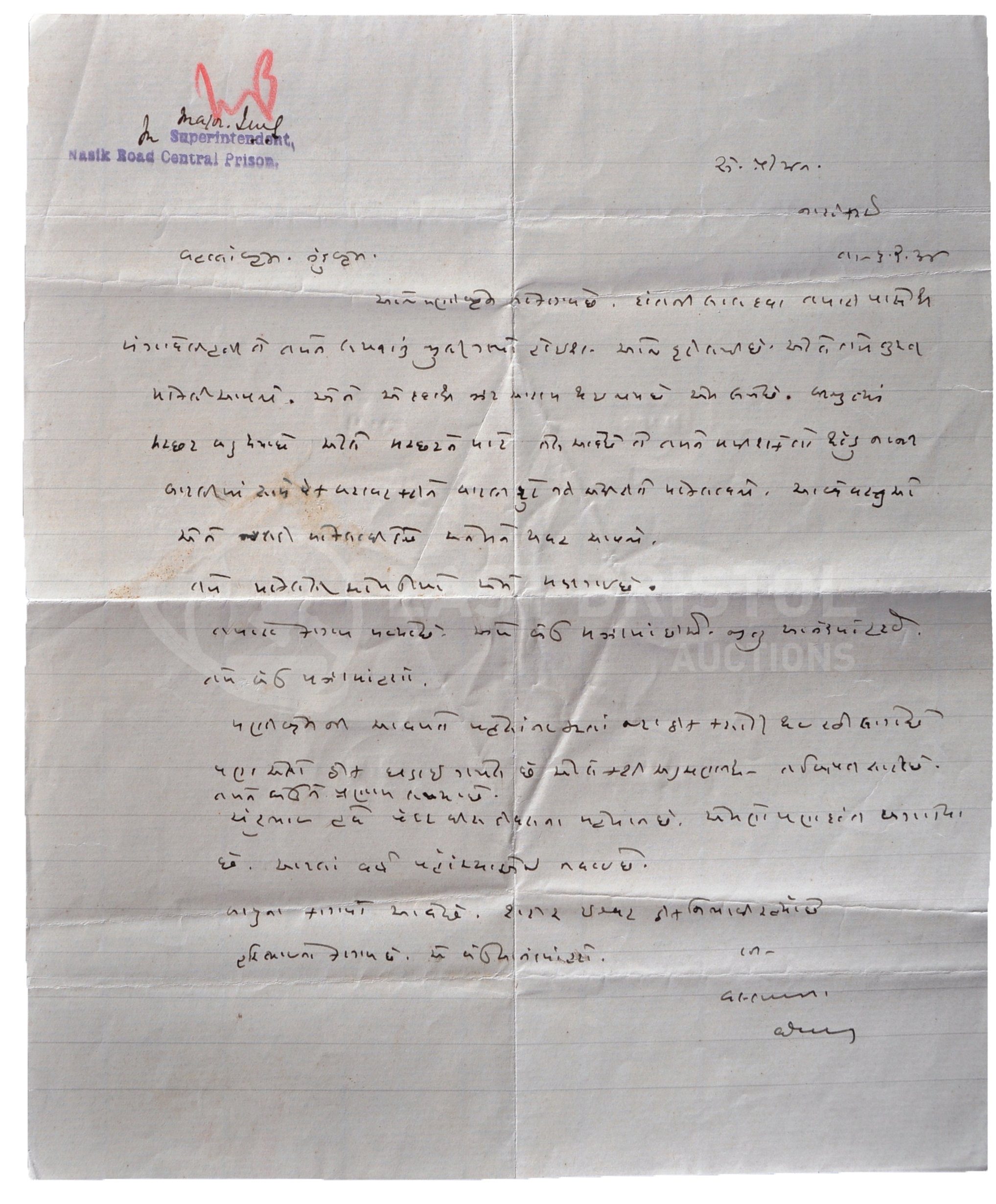
Try LotSearch and its premium features for 7 days - without any costs!
Be notified automatically about new items in upcoming auctions.
Create an alert